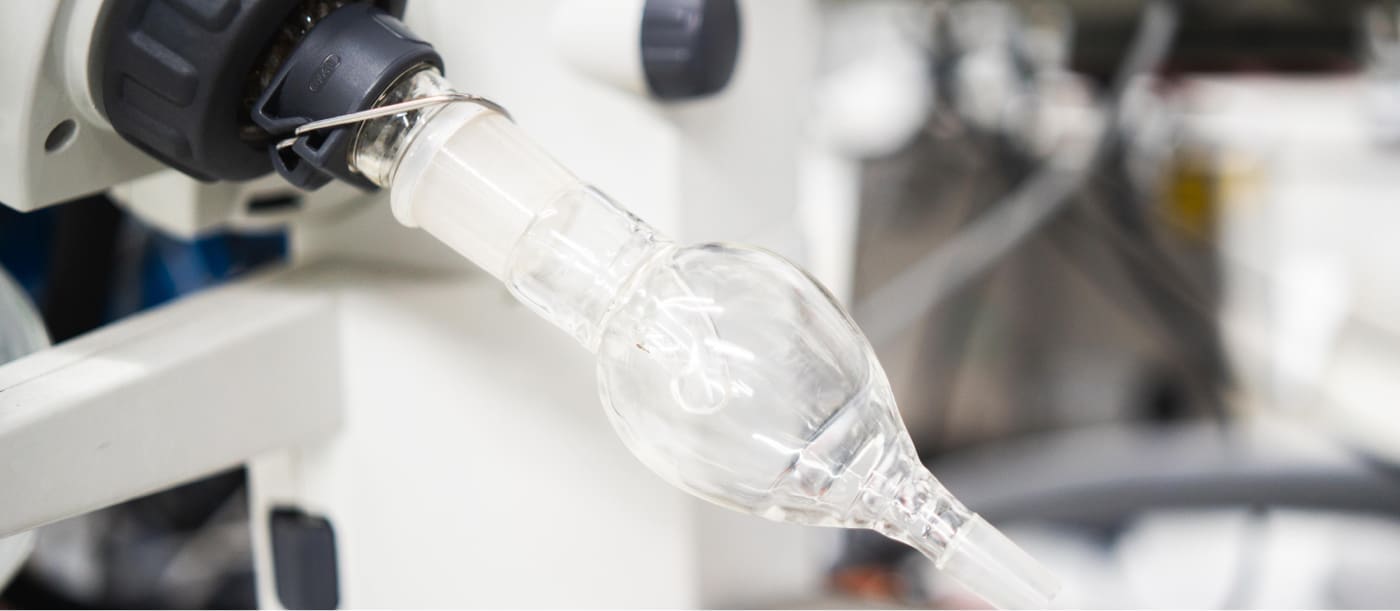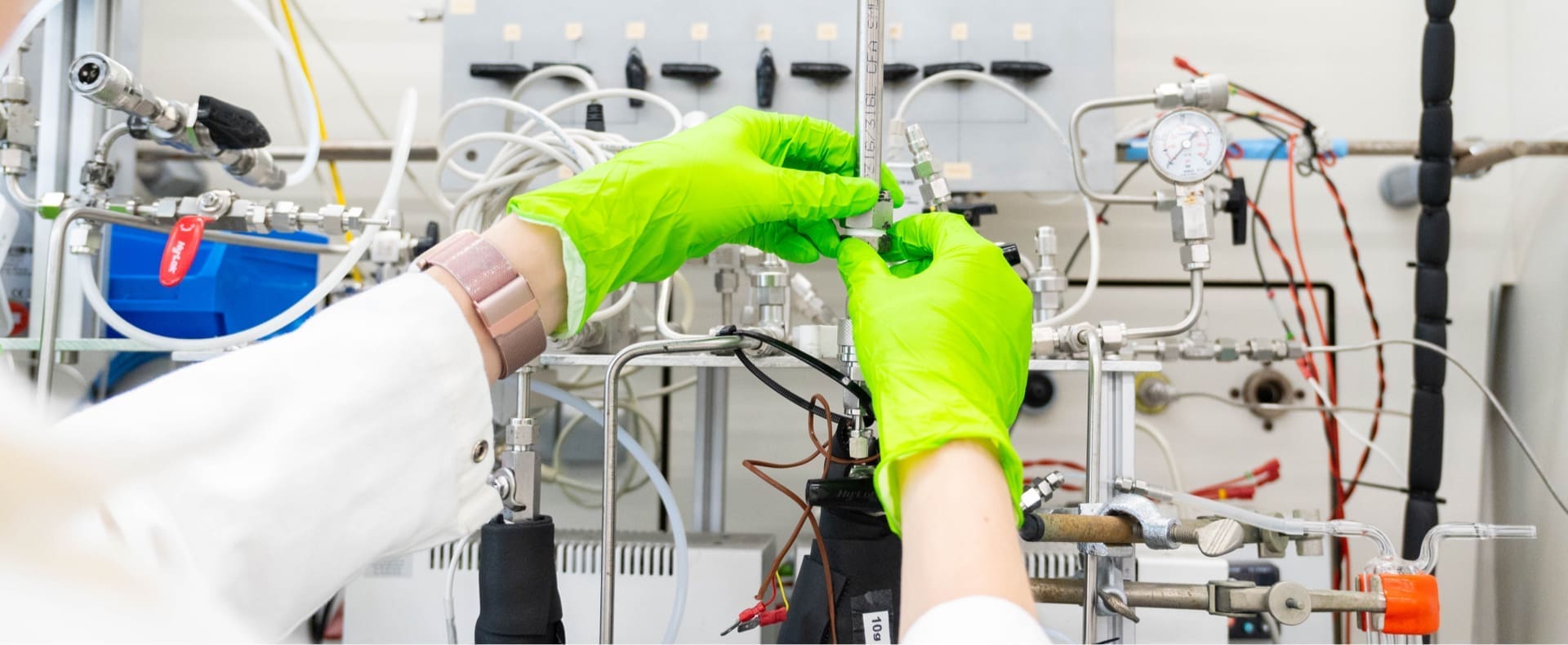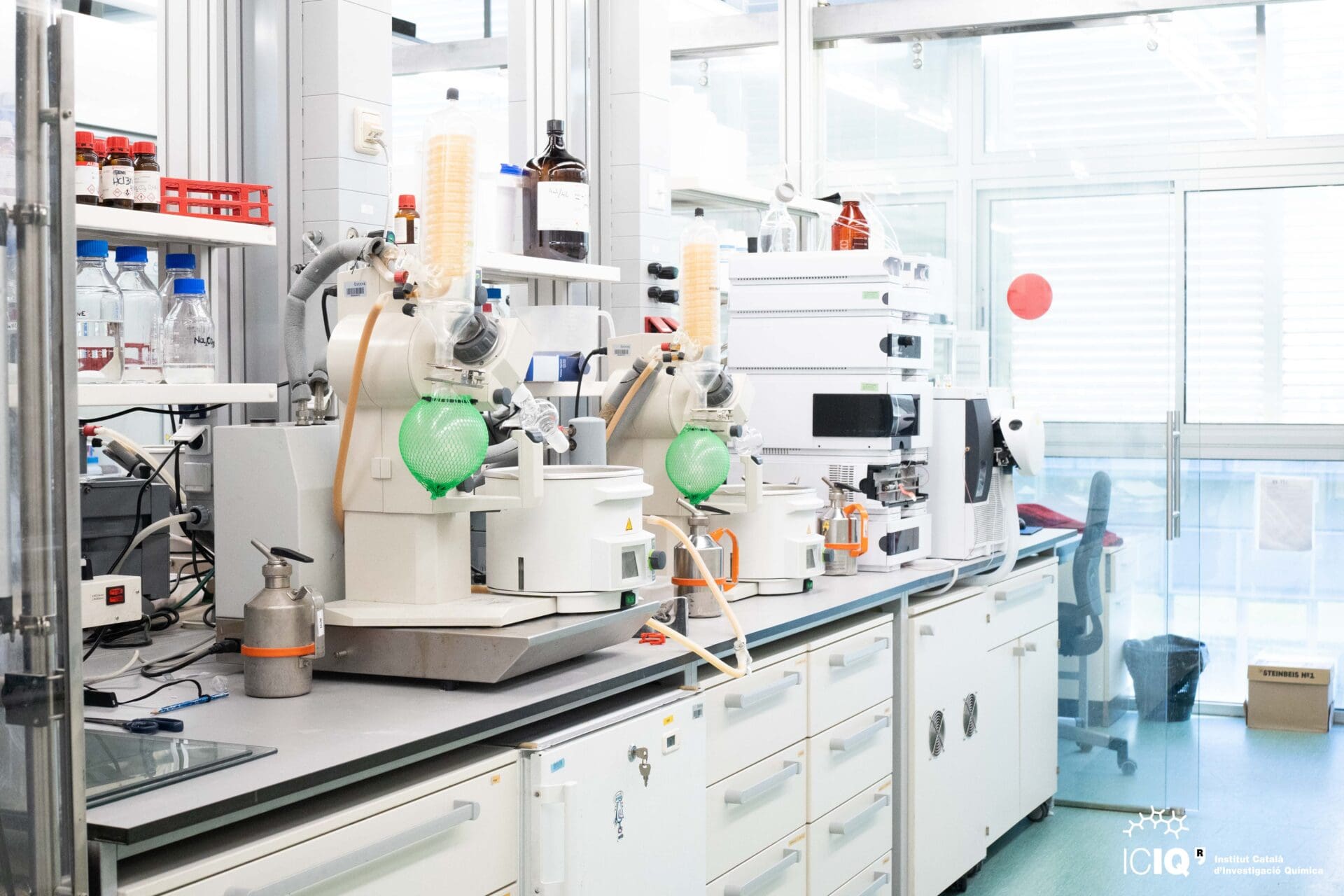Innovative catalysis
Catalysis is the Institute’s largest and most significant research area, making a significant contribution to sustainable chemistry. Its primary goal is to advance processes and products that enhance resource utilization efficiency and minimize waste generation. This field encompasses a broad range of chemical catalysis investigations, including homogeneous, heterogeneous, supramolecular and enantioselective catalysis. It also involves the development of novel ligands and catalytic processes, as well as the design and simulation of catalytic reactors.

Industry and markets
-

Bulk chemistry
-

Chemistry
-

Energy
-

Materials
-

Pharmaceutics
-

Plastics
-

Sensors
Solutions
-
Catalysis and mechanisms
Understanding the role of catalysts in reactions, discovery of new transformations and activation of inert bonds.
-
CO2 conversion
Enabling circular economy and incorporating carbon dioxide in useful compounds and materials.
-
Materials and polymers
Discovery of new materials that follow the principles of sustainability and circularity, and that can outperform current existing ones, or smart materials that provide response to external stimuli.
-
Photochemistry
Use of light irradiation to trigger unprecedented transformations under well controlled conditions.
-
Supramolecular chemistry
With applications in the recognition of molecules and encapsulation.
Projects and technologies
They trusted us
Events
-
April 2025
30
ExhibitionSant Jordi's Day Celebration at ICIQ (2025)
-
May 2025
16
SeminarApproaches and Catalyst’s Designs in Anion-Binding and Acridinium Photocatalysis
-
June 2025
10
SeminarSynthetic Applications and Mechanistic Considerations of Nickel- and Photo-Catalysis
-
June 2025
27
SeminarExploiting Host-Guest Chemistry in Sensing Array, Enrichment of PTMs on Histone Protein and RNA, and Water Micropollutant Detection and Removal
Business & Innovation
Contact our expert team to start a collaboration or to ask for a solution

Get started with an expert
Together, let’s create a brighter future providing solutions through a partnership
Connect with us






















